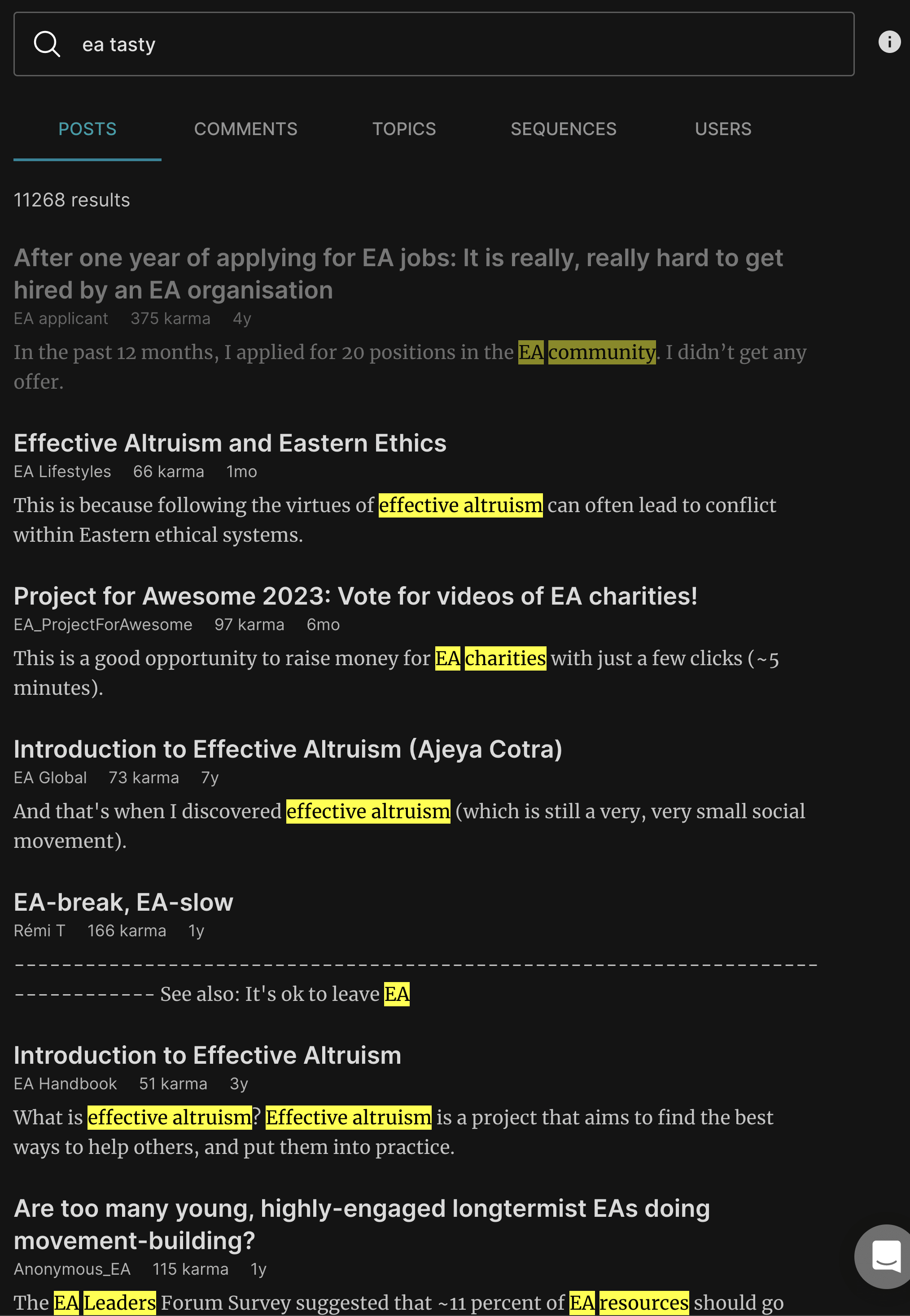Can you point out where the poem is in the very long post?
David M
I read the author’s intention, when she makes the case for ‘forgiveness as a virtue’, as a bid to (1) seem more virtuous herself, and (2) make others more likely to forgive her (since she was so generous to her accusers—at least in that section—and we want to reciprocate generosity). I think this is an effective persuasive writing technique, but is not relevant to the questions at issue (who did what).
Another related ‘persuasive writing’ technique I spotted was that, in general, Kat is keen to phrase the hypothesis where Nonlinear did bad things in an extreme way—effectively challenging skeptics “so, you saying we’re completely evil moustache-twirling vagabonds from out of a children’s fairytale?”. That’s a straw person, because what’s at issue is the overall character of Nonlinear staff, not whether they’re cartoon villains. The word ‘witch’ is used 7 times in this post, and ‘evil’ half a dozen times too. Quote:
> 2 EAs are Secretly Evil Hypothesis: 2 (of 21) Nonlinear employees felt bad because while Kat/Emerson seem like kind, uplifting charity workers publicly, behind closed doors they are ill-intentioned ne’er do wells.
Retaliation is bad. If you think doing X is bad, then you shouldn’t do X, even if you’re ‘only doing it to make the point that doing X is bad’.
Thanks, really helpful to have this overview, makes me more likely to read the sequence itself (partly by directing me to which parts cover what)
Pause For Thought: The AI Pause Debate (Astral Codex Ten)
On the wiki:
It seems like ‘topics’ are trying to serve at least two purposes: linking to wiki articles with info to orient people, and classifying/tagging forum posts. These purposes don’t need to be so tied together as they currently are.One could want to have e.g. 3 classification labels to help subdivide a topic (I think we currently have ‘AI safety’, ‘AI risks’, and ‘AI alignment’), but that seems like a bad reason to write 3 separate similar articles, which duplicates effort in cases where the topics have a lot of overlap.
A lot of writing time could be saved if tags and wiki articles were split out such that closely related tags could point to the same wiki article.
Seems like these ‘topics’ are trying to serve at least two purposes: providing wiki articles with info to orient people, and classifying/tagging forum posts. These purposes don’t need to be so tied together as they currently are. One could want to have e.g. 3 classification labels (‘safety’, ‘risks’, ‘alignment’), but that seems like a bad reason to write 3 separate articles, which duplicates effort in cases where the topics have a lot of overlap.
A lot of writing time could be saved if tags/topics and wiki articles were split out such that closely related tags/topics could point to the same wiki article.
My hard-workingness is really dependent on my work context (e.g., whether I have a job or not). A graph of my hard-workingness over the past year peaks really strongly from Jan-March when I was working on EAGxCambridge, because of the soon and immovable deadlines, and being the main person responsible for it. I tracked 70 hrs/wk of work in the last month (unsustainable). In the meantime I’ve been far less hard-working (which I prefer). I think if I had a baby, I’d also become really hard-working, because I’d be one of the people most responsible for the ‘project’.
does OpenPhil accept donations? I would have guessed not
One can submit new features here: https://www.swapcard.com/product-roadmap
I just submitted what you said.
“After the event, we plan to publish a summary of the survey responses.”
What do such tools offer?
Why do you distinguish between person and company in this respect?
Who’s the other example?
Good work. It occurred to me that this might be happening but I didn’t do the sleuth work. Thanks.
The problem with Kat’s text is that it’s a very thinly veiled threat to end someone’s career in an attempt to control Nonlinear’s image. There is no context that justifies such a threat.
Is my impression correct that EAGxs tend to cost vastly less than this? If so, what explains the difference? (EAGxCambridge cost around $0.25M, and I think other ones had smaller budgets?)
If it’s that larger venues cost more in a super-linear way, that suggests having more and smaller events.
more weird search behaviour
Some reasons could be
a) The purpose of the rest of the questions is to inform the initial sift, and not later stages of the application, and if you have been referred by a trusted colleague, then there is no further use of the optional questions to the initial sift, so it would be a waste of applicants’ time
b) Saving applicants’ time on the initial application makes you likely to receive more applications to choose from
However, these referrals could indeed have a nepotistic effect by allowing networking to have more of an influence on the ease of getting to stage 2.
I was referred to apply to this job by someone who was close to another hiring round I was in (where I reached the final stage but didn’t get an offer).

When I said ‘overall character’ I was trying to draw a contrast between, on the one hand, categorising people into ‘evil’ vs ‘normal’ in a binary way, and, on the other hand, a kind of evaluation that allows for gradations of being a bad actor. My lazy phrasing implied that I was interested in the good behaviour of Nonlinear staff as well as the bad, but I actually think it’s more worth paying one’s limited attention to the bad side in particular, in the same way that it makes more sense to launch an investigation when someone has potentially done something bad, than when someone has potentially done something good.